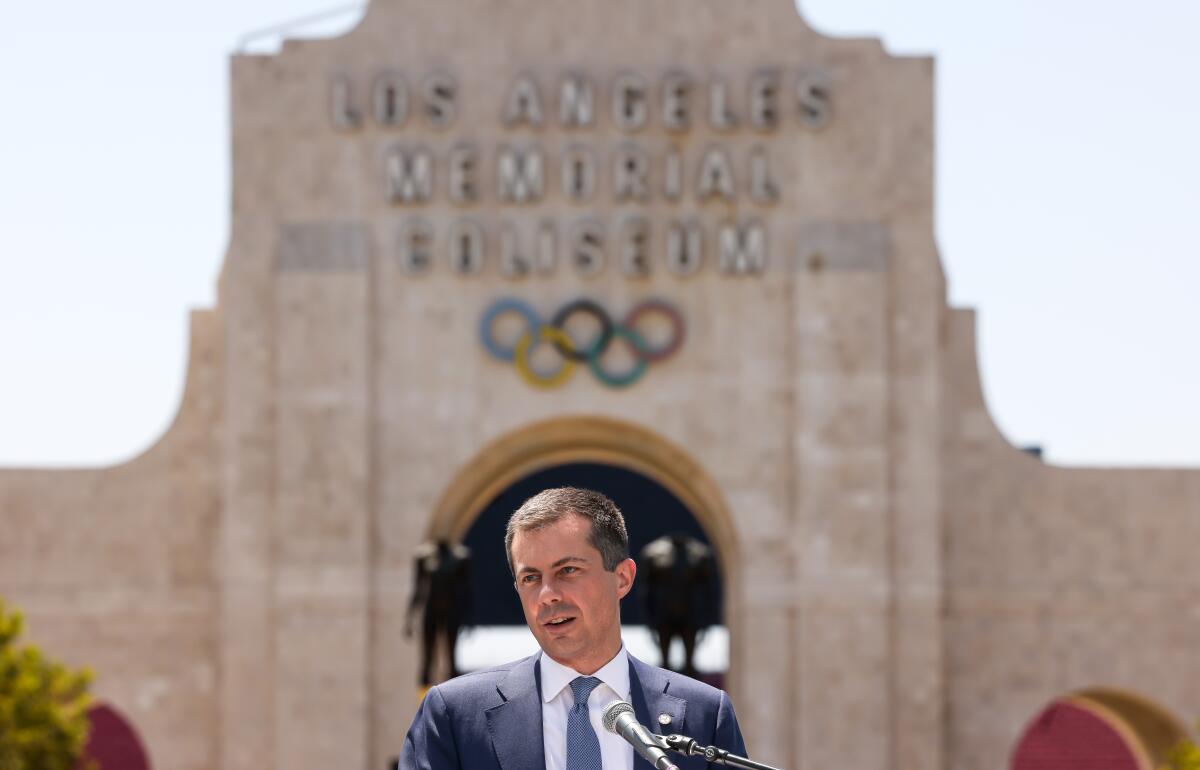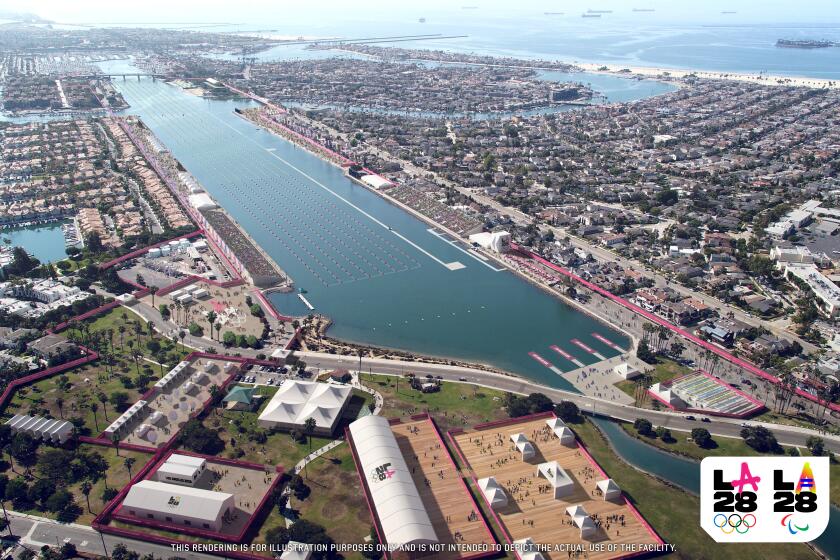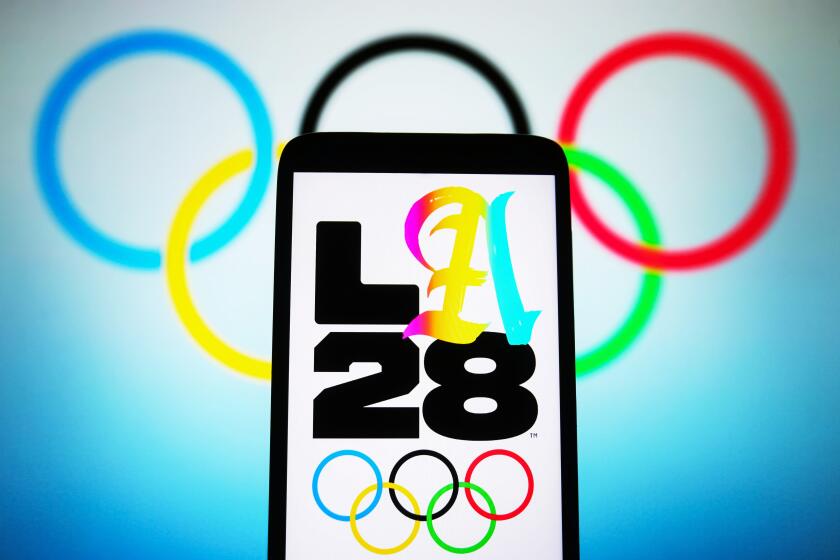L.A. to get $77 million in federal funds to add electric buses before Olympics, hopes for millions more

- Share via
Standing before the renowned peristyle at the Los Angeles Coliseum, where the 1984 Olympics opening ceremony was held, Transportation Secretary Pete Buttigieg on Thursday touted a $77-million infusion of cash for Metro to pay for more electric buses.
The buses will help ferry tens of thousands of fans across the city in what is being trumpeted as a “transit-first” Games, and are among thousands of details that officials need to get in order before Los Angeles hosts the 2028 Olympics. The cash influx aids a larger effort by the Metropolitan Transportation Authority as it pushes to turn its fleet of 2,000-plus buses all-electric by 2030.
“Angelenos and Olympians are going to know just how efficient this region’s public transit can be. This is an investment in the future,” said Buttigieg, flanked by Mayor Karen Bass, LA28 Chairman Casey Wasserman and other officials who are looking to the Paris Olympics, set to start this month, as L.A.’s countdown begins.
MTA aims to acquire battery-electric buses, charging equipment and supporting infrastructure to operate reliable zero-emission services spanning multiple cities within L.A. County.
Long Beach will host seven sports and Dignity Health Sports Park in Carson will host four as part of an updated venue plan for the 2028 Olympics.
Buttigieg spent the day in Los Angeles riding the subway, getting on trains, taking buses and touting funds the region had received as part of the Biden administration’s $1-trillion infrastructure bill, which has pumped millions of dollars into Metro’s expanding rail system and the port, as well as getting new projects off the ground. But most Los Angeles officials had their minds trained on the 2028 Olympics, with the Paris Games just days away.
More than a million people are expected to come to the Los Angeles region for the 17-day Olympiad, and organizers want them to arrive at venues by public transit, on foot or by bike. That will be quite a feat for a sprawling metropolis known for its congested freeways. So, local leaders have used the Olympic Games to add urgency to their wish lists, such as the fleet of electric buses. This strategy has led to some funding — but it won’t solve the logistical puzzle of moving vast crowds of tourists on a day-to-day basis.
Metro has asked the Biden administration for an additional $319 million for the upcoming year to cover costs related to the Games, including $45 million to plan and design the supplemental-bus system that will carry fans to venues and $14 million to design routes for athletes and other VIPs.
Buttigieg said he couldn’t “get ahead of the White House” but that his department had been providing technical support to Congress members who are weighing how to support the Olympics with funding.
But, so far, there hasn’t been a commitment. Mayor Bass, who is heading to Paris next week for the Olympics, said she was confident that President Biden, who is facing a bruising campaign, will help Los Angeles.
The Los Angeles 2028 Olympic organizing committee is entering the final and toughest stage of its long life — turning the Games into a reality.
“The White House has been supportive from Day One,” she said Thursday on a grassy area outside the Coliseum. “There is an individual staff person there that focuses on the Olympics that we stay in constant contact with. And so I feel very encouraged.”
Then-Mayor Eric Garcetti, who secured the ’28 Games, sold it to the public as a monumental event that would generate millions, not burden taxpayers. But transportation is proving to be tricky. One tabulation of the cost to double the number of buses so fans can better transverse the city on public transit is estimated at upward of $1 billion.
And the buses purchased from the federal grant won’t expand the fleet or get the agency to its goals of going electric. There are too many roadblocks for that to happen, including a lack of chargers and a shrunken pool of manufacturers that can deliver electric buses.
For now, Bass and many of the rest of the Metro board — which includes the Board of Supervisors — will go to Paris to watch how the city handles the Olympic and Paralympic Games.
And they are in wait-and-see mode when it comes to funding.
The incoming Metro executive board chair, Supervisor Janice Hahn, said she and Bass pitched Buttigieg as they rode the B Line on Thursday, stressing that the federal government should help with the Olympics.
“We wanted to make the case that we shouldn’t go it alone,” she said. “We could use federal dollars to help us.”
City News Service contributed to this report.
More to Read
Sign up for Essential California
The most important California stories and recommendations in your inbox every morning.
You may occasionally receive promotional content from the Los Angeles Times.












